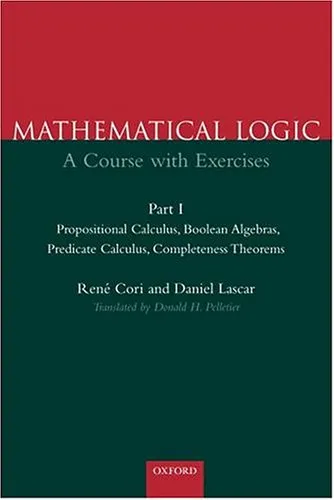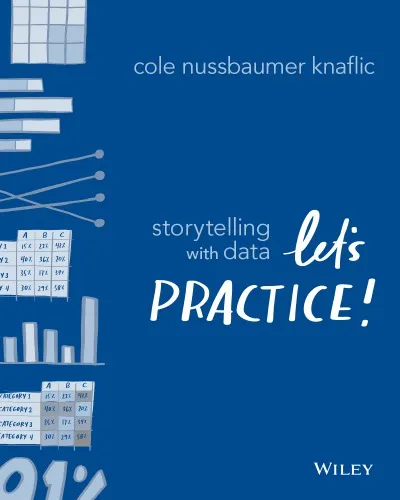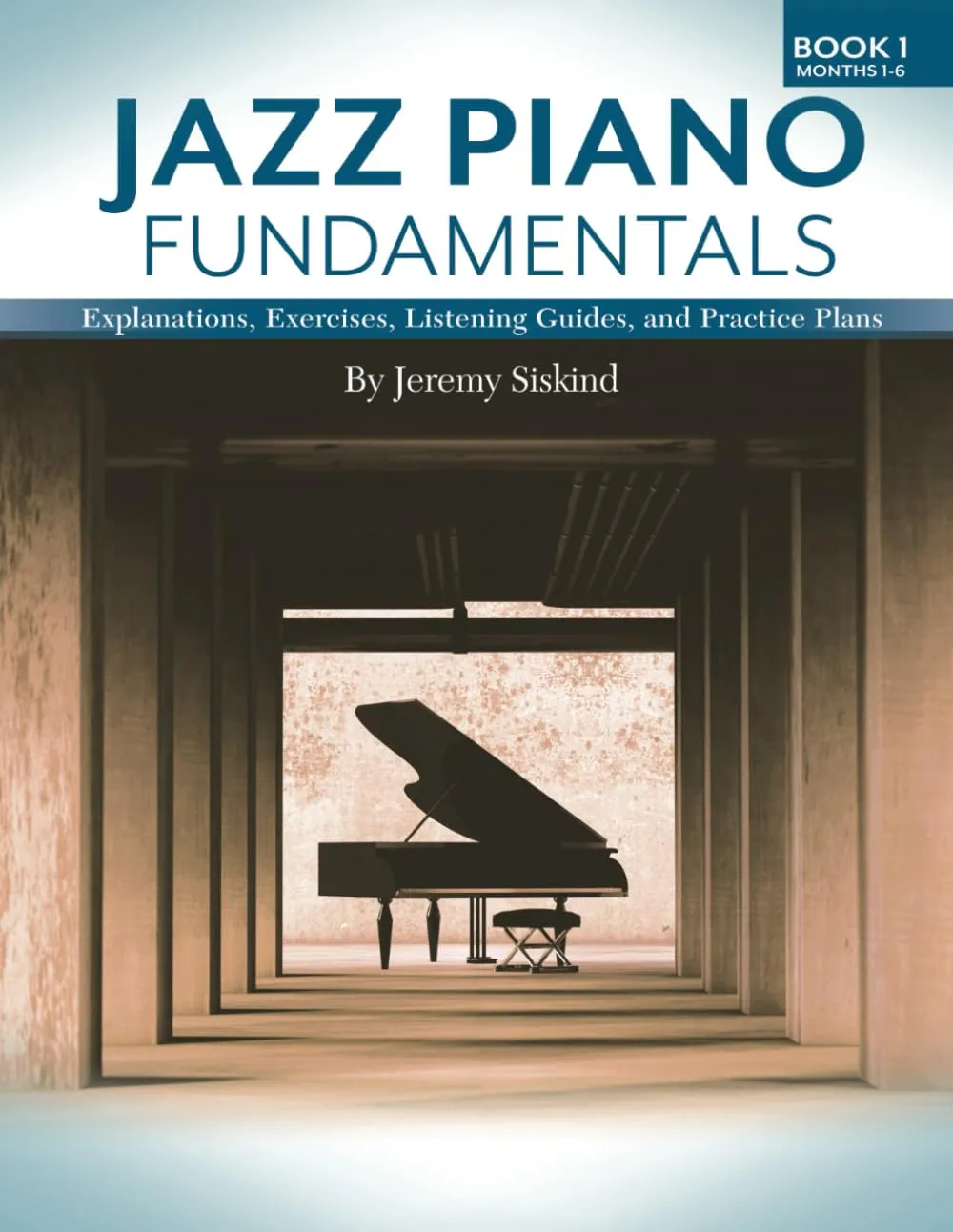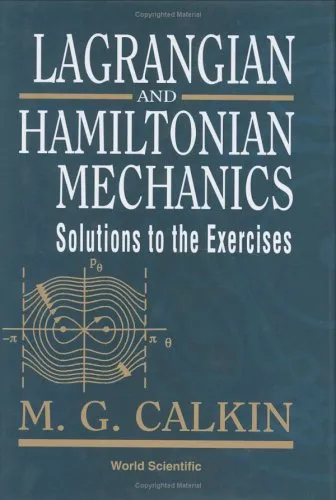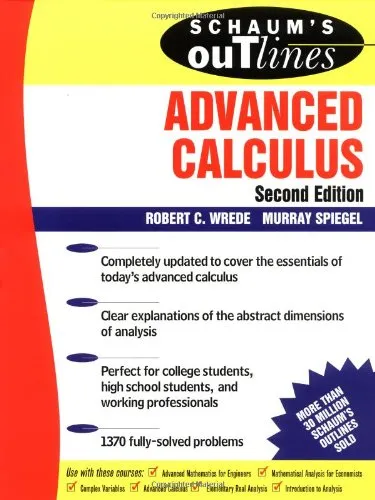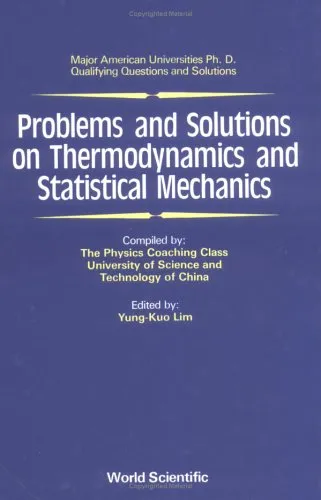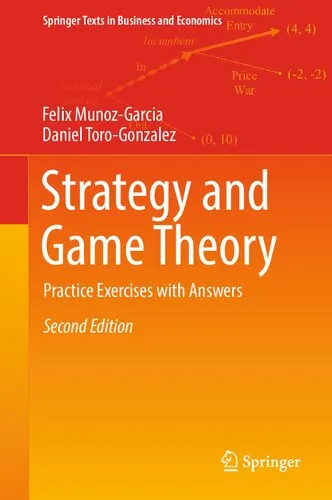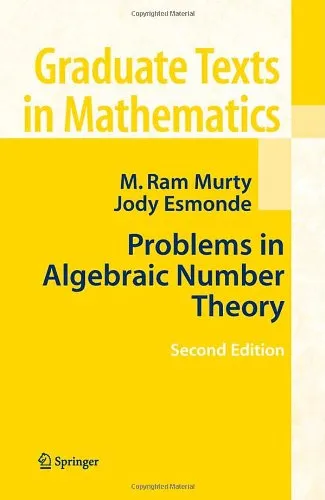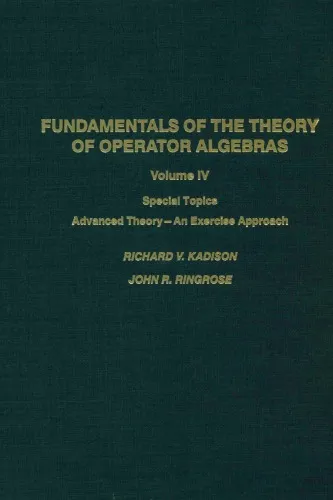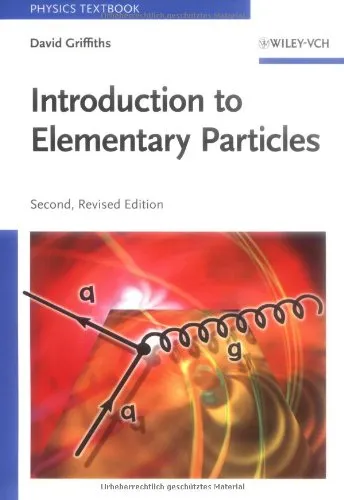Mathematical Logic: A Course with Exercises Part I: Propositional Calculus, Boolean Algebras, Predicate Calculus, Completeness Theorems
4.5
Reviews from our users

You Can Ask your questions from this book's AI after Login
Each download or ask from book AI costs 2 points. To earn more free points, please visit the Points Guide Page and complete some valuable actions.Related Refrences:
Introduction to "Mathematical Logic: A Course with Exercises Part I"
Mathematics and logic have always gone hand in hand, delving into the underlying frameworks that define and structure mathematical thought. "Mathematical Logic: A Course with Exercises Part I: Propositional Calculus, Boolean Algebras, Predicate Calculus, Completeness Theorems" is a fundamental text for those aspiring to understand this rich interplay. In this introduction, we aim to provide a detailed overview of this textbook, highlighting its key contributions to the field of mathematical logic, and outlining its relevance to students and researchers alike.
Detailed Summary of the Book
This book offers a comprehensive exploration of mathematical logic and serves as an introductory text for students stepping into the world of propositional calculus, Boolean algebras, predicate calculus, and completeness theorems. Designed as a structured course with exercises, this book facilitates both self-study and classroom learning. The journey begins with an analysis of propositional calculus, laying the groundwork for understanding logical statements and their relationships. Through meticulous explanations and examples, readers gradually familiarize themselves with the principles and nuances of Boolean algebras, a domain where logic intertwines with algebraic structures.
Subsequently, the book transitions to predicate calculus, presenting it as a robust extension of propositional calculus. Predicate calculus delves deeper, accommodating more complex expressions involving variables and quantifiers. The book articulates these concepts with precision, allowing readers to grasp both the syntax and semantics involved.
The exploration culminates in an in-depth discussion of completeness theorems, which are pivotal in proving the consistency and axiomatizability of logical systems. Completeness theorems assure us that logical deductions made within formal systems are sound, establishing a crucial link between theory and practice. Throughout, the book intertwines theoretical exposition with practical exercises, reinforcing understanding and ensuring mastery.
Key Takeaways
- Comprehensive understanding and application of propositional calculus and its implications in logic.
- Mastery of Boolean algebras and transformation of logical expressions.
- An elaborate insight into predicate calculus, including its syntax and semantic interpretations.
- Detailed exploration of completeness theorems and their significant role in logical consistency.
Famous Quotes from the Book
"To learn mathematics is to construct relationships, not just to receive a ready-made package."
"The language of logic is universal; it transcends the boundaries of individual human languages."
Why This Book Matters
"Mathematical Logic: A Course with Exercises Part I" is an essential text for anyone engaged in the fields of mathematics, computer science, and related disciplines where logic acts as a foundation. Its precise and methodical approach to fundamental mathematical logic concepts makes it an invaluable resource for undergraduate students as well as advanced scholars. By bridging theoretical constructs with practical application, it equips readers with the tools needed to pursue further study or professional work in logical systems, computer programming, algorithmic design, and beyond.
The book stands out not only for its clear exposition but also for its inclusion of exercises that challenge the reader to engage deeply with the material. Through practical application, readers reinforce their learning and develop the analytical skills necessary to navigate and innovate within the realms of logic and mathematics.
In conclusion, this book is a beacon for those embarking on the path of mathematical logic. It is a guide and companion, leading the reader through the intricate landscapes of formal logical systems, ensuring they emerge not only as learners of mathematics but as thinkers of logic.
Free Direct Download
You Can Download this book after Login
Accessing books through legal platforms and public libraries not only supports the rights of authors and publishers but also contributes to the sustainability of reading culture. Before downloading, please take a moment to consider these options.
Find this book on other platforms:
WorldCat helps you find books in libraries worldwide.
See ratings, reviews, and discussions on Goodreads.
Find and buy rare or used books on AbeBooks.
1293
بازدید4.5
امتیاز0
نظر98%
رضایتReviews:
4.5
Based on 0 users review
Questions & Answers
Ask questions about this book or help others by answering
No questions yet. Be the first to ask!
